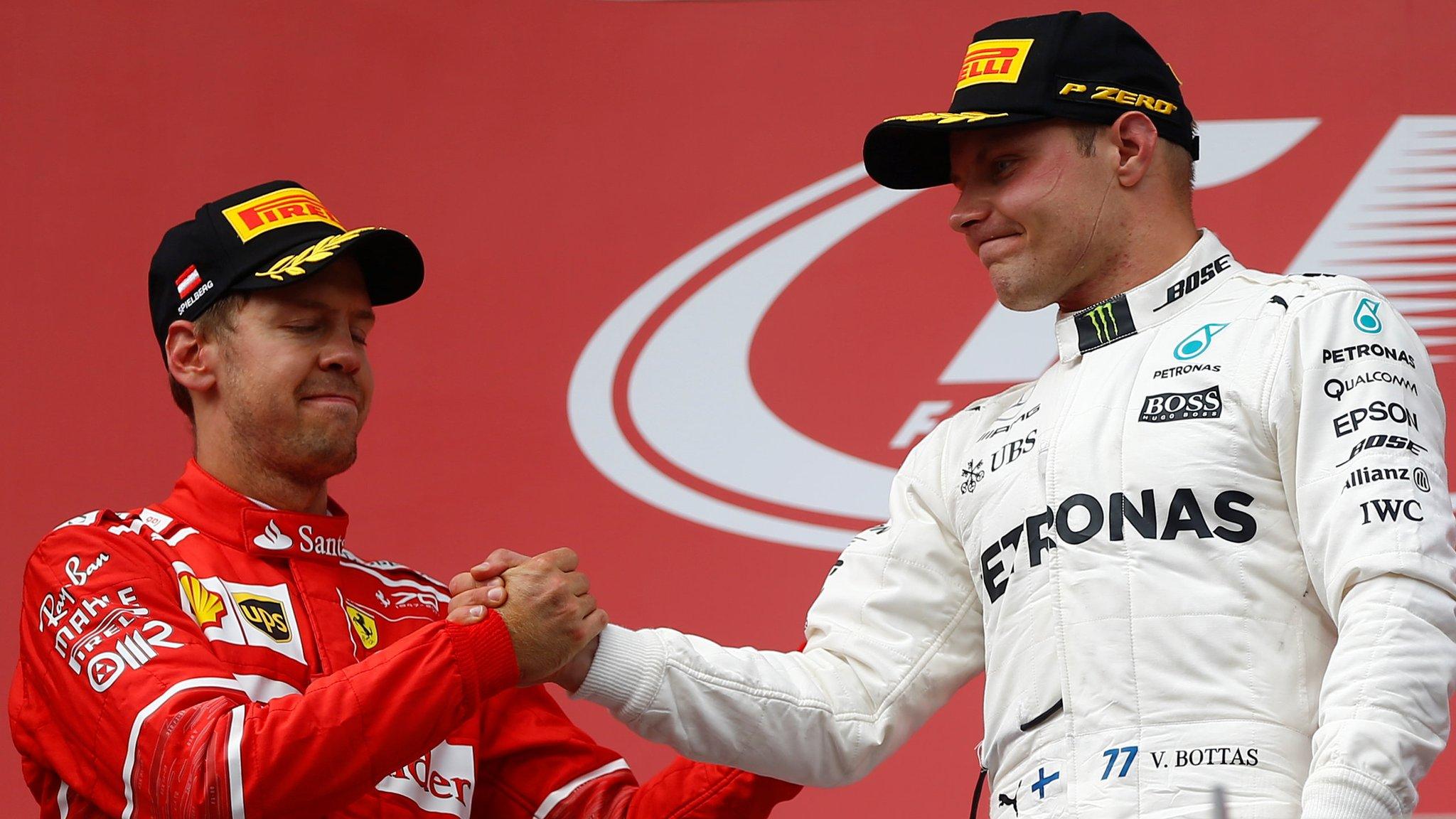'Contradictory, puzzling and infuriating: Why Lewis Hamilton is so compelling'
- Published
- comments
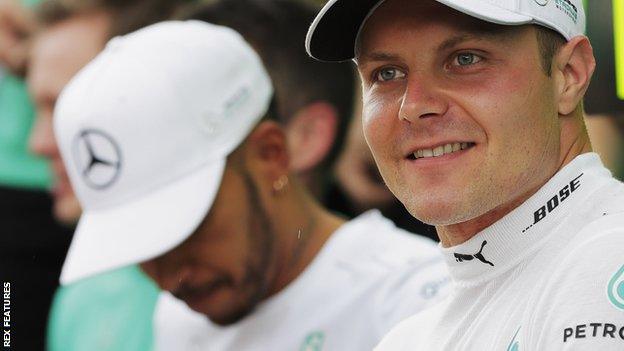
Hamilton was visibly down after the Austrian Grand Prix, contrary to team-mate and race winner Valtteri Bottas
Lewis Hamilton was pretty down after the Austrian Grand Prix, which was understandable seeing as he had just seen his championship deficit to Sebastian Vettel stretch to 20 points.
The Mercedes driver was fairly monosyllabic in his television interviews. A pep talk from team boss Toto Wolff followed, the Austrian telling him he should see his fourth place as "12 points won rather than lost".
But, while he was more open and expansive with the written media shortly afterwards, the general negative tone continued.
And then, at the end, a moment of realisation, presumably of the headlines that might follow, and a plea for understanding.
"Adversity is when there is an opportunity to grow and do something really special," Hamilton said. "I am really happy with the way I have been driving considering [the results].
"It is important for people who are watching and also people who are reporting that you have patience with us as drivers. You can't be happy every day you have a result.
"Whether it is second, fifth, 10th, whatever it is, you are going to be annoyed at one point, because you put so much into it.
"You train. You sacrifice everything to make sure you get the best result possible. So when you don't - if you don't personally deliver and other things stack up against you - it is hard to come out smiling. Because that means you don't care enough. And the fact is I care more than anything.
"So there are days when it feels more painful than others. There are days when it is easier to handle and think: 'I will move forwards.' So when you make comments, or are writing stories, bear that in mind. It is not a sign of being ungrateful or anything.
"This is an intense battle which I am loving, and we are enjoying as a team, but I want to win this championship.
"Right now I am 20 points behind. I don't have a crystal ball but it doesn't look great at the moment. But there is still a long way to go. Within one race it could switch. But the bigger the gap gets the more pressure builds."
An open book
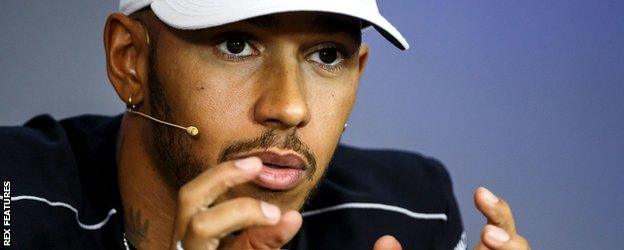
Hamilton is rarely able to hide his emotions in interviews
This is one of the aspects of Hamilton that makes him so compelling a personality to follow. He can be contradictory, puzzling and infuriating. But also intelligent, eloquent and fascinating. And he just can't hide himself, even if sometimes he might be trying to.
It was there throughout the weekend in Austria.
There was the Thursday news conference in which he undercut Vettel's attempt to draw a line under his road-rage moment in Baku at the previous race by revealing that the German had not apologised when they spoke the day after the race, only by text a day after that. And said he still wasn't completely sure the German had made it clear he did not think Hamilton had 'brake-tested' him (although Vettel did).
There were the monosyllabic interviews after he qualified third rather than fastest, which meant he would start eighth rather than sixth, and in which he tried to bat off his disappointment before, finally, admitting: "I didn't deliver. I have been quick all weekend and in Q3 I didn't do the time I could have done and when you're disappointed in yourself it is a large pill to swallow. But we move on and I will."
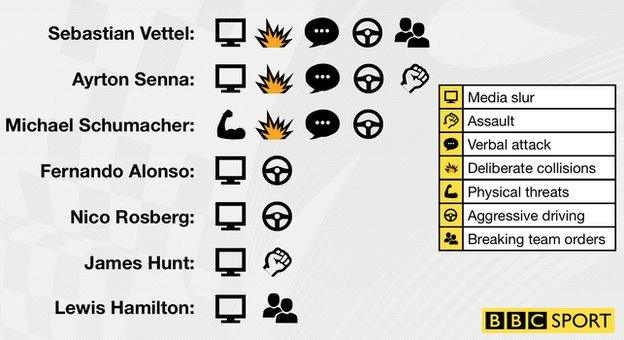
When champions turn bad: who has seen the red mist over the years, and what did they do?
And then after the race. Hamilton had done about as much as could be expected, expertly balanced caution and aggression, picked his way through the field, adapted to a car whose balance he was not happy with, which was causing problems with the tyres.
But still his focus was that he had not quite managed to separate Red Bull's Daniel Ricciardo from third place on the penultimate lap.
"After my initial feelings," he said, "I just watched the replay with Daniel, to see how far alongside I was and if I had just been a little more aggressive whether I would have got ahead. But he defended it really well and I don't think I could have done better.
"When I was doing the [TV] interviews, that was what I was disappointed in. I'd worked so hard to close that gap and get into the window and he made a mistake which enabled me to be there. To drive all those laps so well and then still come out with the same place I was in is definitely difficult."
A good result, in context
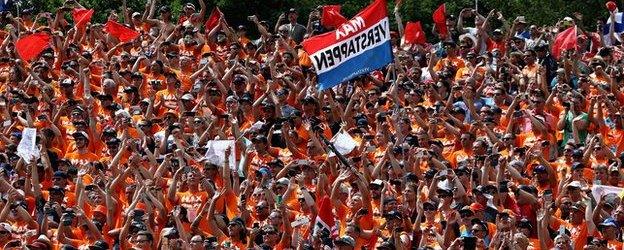
Max Verstappen's fans were disappointed when the Dutchman's race ended on lap one
With the benefit of a bit of space, Hamilton will almost certainly conclude that the result in Austria was not too bad for him.
With Vettel starting on the front row, the Ferrari driver could easily have won the race. But an electrifying start from pole by Hamilton's team-mate Valtteri Bottas - which both Vettel and Ricciardo questioned afterwards, but which he got away with after an investigation - following a composed race by the Finn meant Vettel finished only second.
Starting eighth, Hamilton could have been caught up in the sort of first-corner accident triggered by Toro Rosso's Daniil Kvyat, which took out McLaren's Fernando Alonso and Red Bull's Max Verstappen.
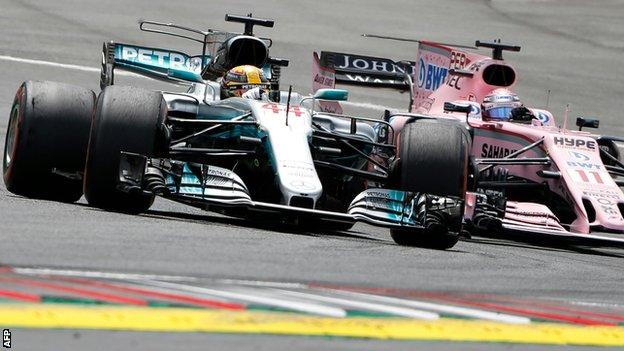
Hamilton made a number of early passes but couldn't overtake Daniel Ricciardo's Red Bull on the penultimate lap
Instead, he picked his way carefully past Force India's Sergio Perez and then Haas' Romain Grosjean, closed on Ferrari's Kimi Raikkonen, passed him with an off-set pit strategy and came oh-so-close to a podium position after hunting down Ricciardo.
"When I go and look at the race trace, I was actually quickest of everyone," Hamilton said. "I had the strongest race.
"Once I got past the Force India and Haas, I was something like 16 seconds [actually 14.4] behind Valtteri and then there was another bunch of seconds I lost, and at the end I was only six seconds behind.
"So looking at that afterwards it is a real positive. In terms of points it is what it is. I just have to keep driving the way I have been and hope things get better."
But things to work on for Hamilton and Mercedes
There are, though, elements of concern about this season for Hamilton, of which the largish points gap to Vettel, and smallish one back to Bottas behind him are only the reflection.
"If you don't personally deliver and other things stack up against you," Hamilton said in that speech at the end of the weekend. Inadvertently or otherwise, that is a pretty accurate summation of his season so far.
The races that have really harmed Hamilton's title bid have been Russia, Monaco, Azerbaijan and Austria.
In Russia, Mercedes struggled with tyres, but Hamilton much more so than Bottas, who ended up winning while Hamilton was only fourth. Same story in Monaco - where Bottas qualified second and finished fourth, and Hamilton could manage respectively only 14th and seventh.
In Baku, Hamilton was robbed of a certain victory by a loose headrest and ended up losing out to Vettel despite the German's 10-second stop-and-go penalty for dangerous driving.
And then came Austria. Fastest in all three practice sessions, and in the first qualifying session before Bottas beat him in Q2, Hamilton qualified third when he probably should have been first.
The were mitigating circumstances - he used a different type of tyre in Q2 - which meant he was not ready for what the car was doing in Q3.
"Usually when you do Q2 you do it on the same tyre as you do Q3, so you build and build and build, and you know where the tyres are," he said. "I was on the super-softs and I went over to the ultra-softs and the balance was different. It was a little bit to the detriment of the pace but it is fine."
He added that this was "not particularly important right now." But that was straight after pointing out the time he had lost behind Perez and Grosjean, so it was quite important really. Had he not lost those 14.4 seconds, who knows what the result might have been?
A formidable rival in Vettel and Ferrari
F1: Ferrari's Sebastian Vettel is on 'incredibly thin ice'
Meanwhile, despite his moment of madness in Baku, Vettel has been Mister Consistency. His average qualifying position is 2.3; Hamilton's is 3.1.
They are on three wins each, but Vettel has only finished off the podium twice - and both times he was fourth. Hamilton has finished off the podium four times - and has a seventh and a fifth to add to his two fourth places.
Yes, as Hamilton said, Vettel is likely to have a bad race "eventually". But against him in a Ferrari as user-friendly and consistently quick as this year's, Hamilton probably cannot afford for his season to continue being as up and down as it has been so far. Three bad weekends in nine, whatever the reasons, is too high a ratio.
And now Bottas in the mix, too
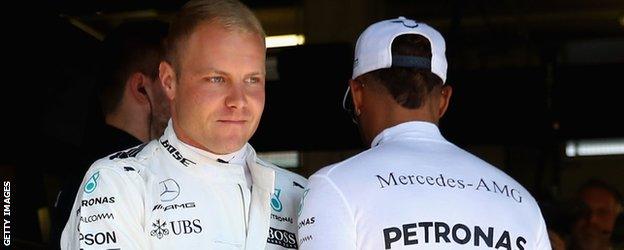
Bottas now has two race wins this season and has closed the gap to Hamilton to 15 points
Complicating matters further is Bottas' form. The Finn is only 15 points behind Hamilton despite not finishing one of the races. His average qualifying position is the same as Vettel's. He has won only one fewer grand prix than the two multiple world champions.
Quietly, unobtrusively, the Finn is emerging as a major contender.
"When you look a the results," Hamilton said, "he has had a DNF as well so he has generally had a better season so far but there was never a point that he wasn't in the fight. It was only maybe you guys who potentially suggested he wasn't in the battle. I always assumed he still was and that just shows he still is."
While Vettel has a clear back-up man as his team-mate in Kimi Raikkonen, Hamilton has a rival in his own camp, albeit an uncomplicated and apolitical one who will not try to destabilise Hamilton off track as Nico Rosberg used to do.
How will Mercedes handle this? "Like we have handled it in the past," team boss Toto Wolff said. "With the difference that dynamics between the drivers are completely different.
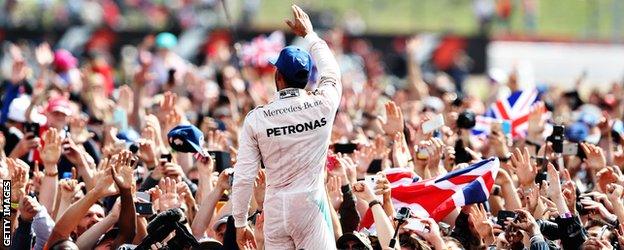
Hamilton will be going for his fourth straight British GP win next weekend
"For Lewis it was actually the best outcome today that Valtteri wins the race rather than Sebastian. We are not even half time and we start counting points. In my opinion, Lewis had all the bad luck that you can have.
"We have let him down with the head rest and the gearbox and now it is about time to fight back and hopefully that is going to happen at Silverstone."
Hamilton has won his home race for the last three years and is looking at the halfway point of the season this weekend as his chance to get his championship back on track.
"I am looking forward to getting there and hope that we can use that as a springboard and get some better results from then on," Hamilton said. "Lot of pressure going into it. This has been a difficult weekend so we will try to get past this in the next couple of days and move forward."
- Published9 July 2017
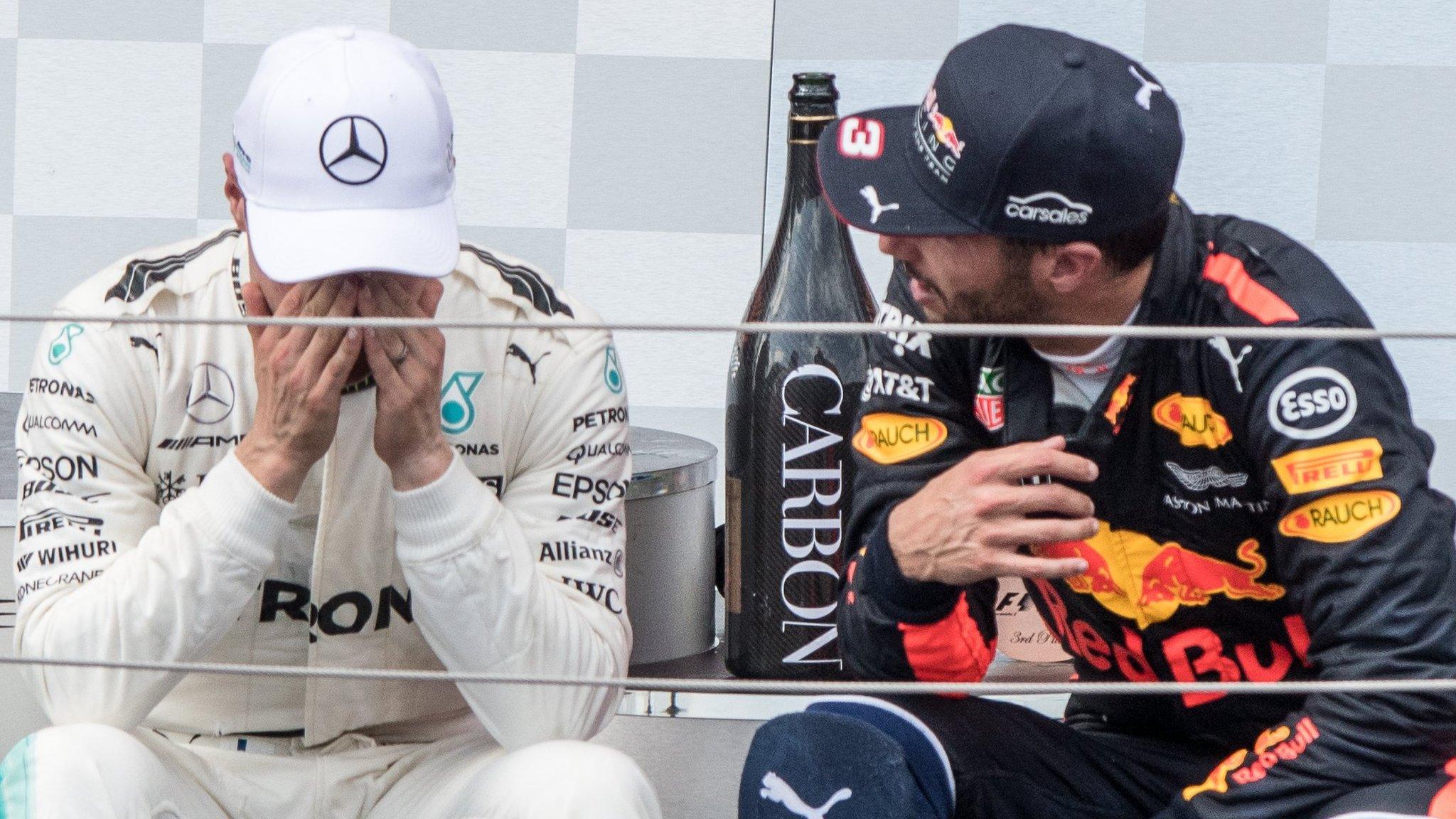
- Published9 July 2017
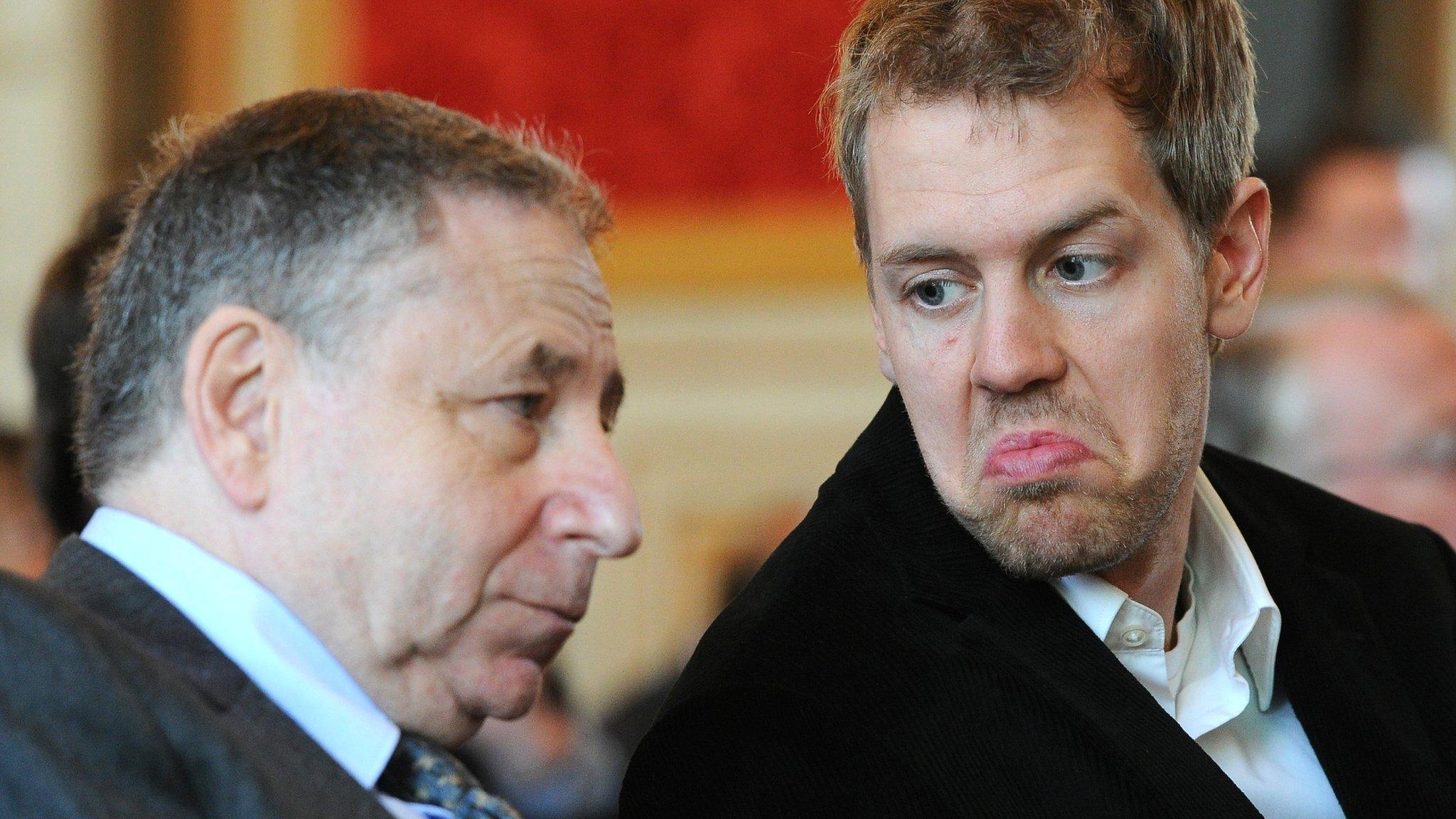
- Published11 July 2017
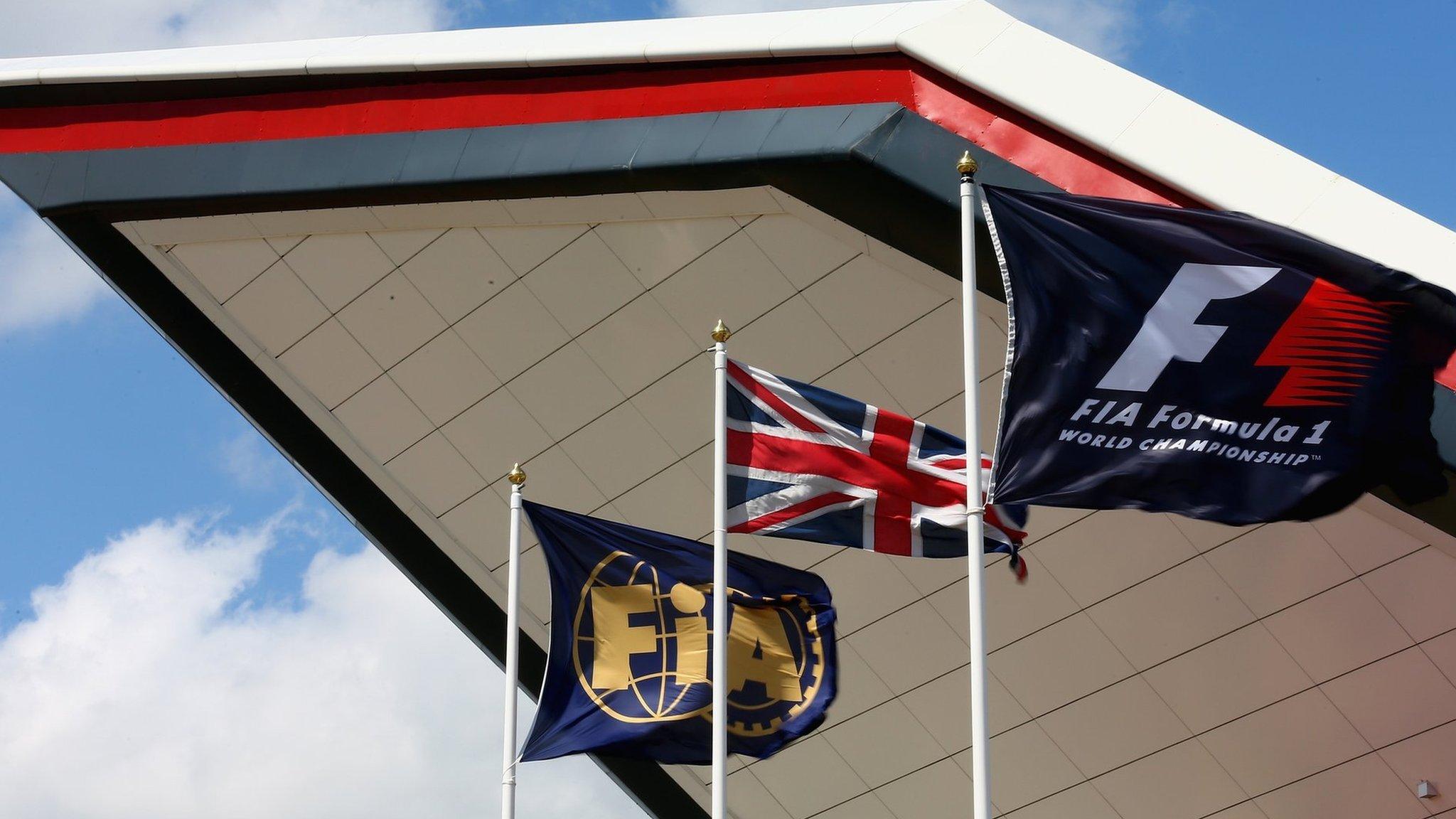
- Published6 July 2017
